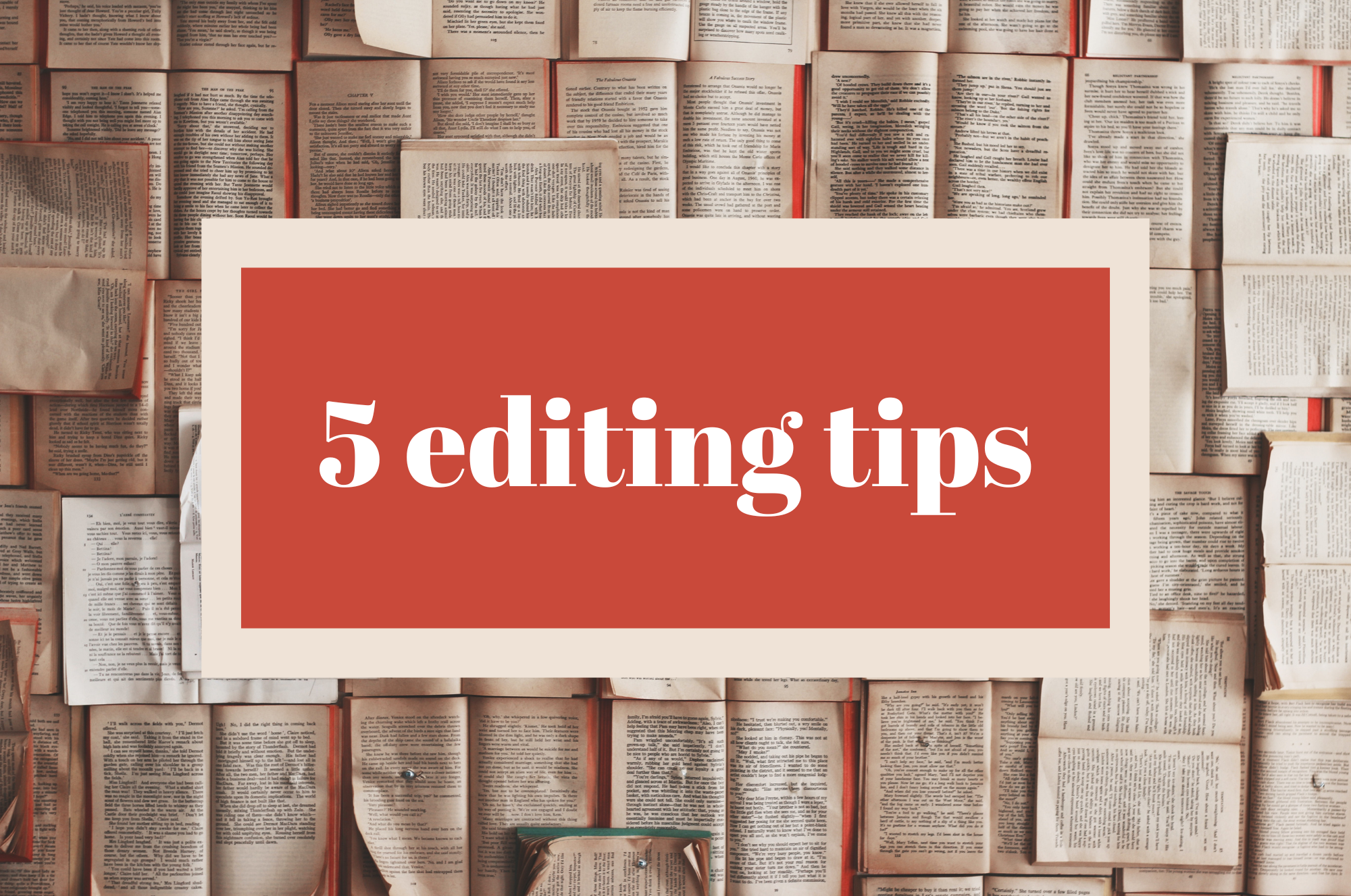You did it! You finished your rough draft! Unfortunately, you’re still waiting on the results from that wish you made on a dandelion last week to be a perfect writer, so rather than being done, you’ve got to edit. Here are five tips to keep in mind while you’re doing that.
Tip One: Basic Best Practices
This one isn’t exactly groundbreaking, but it bears saying nonetheless: make sure you know how to use punctuation. Creative writing gives you the freedom of ignoring a lot of the regular rules of grammar and punctuation in favor of stylistic decisions, but you can only ignore rules you’re aware of in the first place. Online sites like Purdue OWL and, surprisingly enough, WikiHow can help you brush up on the basics, and software like Ginger can go through your work and make sure you’re using punctuation correctly—or at least let you know what “correctly” looks like, so you can ignore it at your leisure.
A basic online review should be enough to brush up your piece, but if you’re a nerd like me who likes reading style guides for fun, there are a handful of books you might be interested in keeping on your desk. I recommend A World Without “Whom” by Emmy J. Favilla; Dreyer’s English by Benjamin Dreyer; Eats, Shoots & Leaves by Lynne Truss; and The Transitive Vampire by Karen Elizabeth Gordon.
Tip Two: Your Buddy, Hal 9000
One of the hardest things about editing is that you know what you were trying to say. The problem is, the work you’re reading back doesn’t. So while your brain may be filling in the right words, it’s possible that that’s not actually what you typed, and your eyes are just skipping over the the double words and the words replaced by there homophones. While built-in grammar checkers will catch some of these mistakes (I’m currently doing my best to ignore some pointed squiggly blue lines in that previous sentence), the mistakes that aren’t technically incorrect but also aren’t what you meant are trickier.
One of the best ways to get around this is to have a computer read your writing back at you. There are plenty of softwares out there that do this, and the program you’re using to write may even have one built in. If it doesn’t, I recommend sites like TTSReader or—and this one is my favorite—NaturalReader. If you use that second one, I suggest taking advantage of those free 20 minutes of Premium and using Ryan. He’s lovely.
Tip Three: You Are Your Own Audiobook
A computer is merciless when it comes to double-checking grammar and flow, but it tends to fall short when it comes to dialogue. Even Shakespeare sounds robotic when read by… well, a robot. Dialogue also happens to be one of the places where writers are most likely to eschew the “rules” of grammar in favor of style, because the average person doesn’t and shouldn’t follow Standard English when they talk.
To edit dialogue, it’s a good idea to read it out loud yourself, or have someone else read it out loud to you. When read aloud, does it sound the way you wanted it to? If not, identify why and edit accordingly. If it did, but you had to do something funky to make it sound right—pitching your voice a certain way, pausing at specific spots, etc.—make sure your writing reflects that with how you use punctuation and description. Your readers are reading your writing, not your mind. You probably shouldn’t write out an intense stutter or a thick Cockney accent too often, but you should at least let your readers know that they should be imagining one.
Tip Four: Theater of the Mind
Your hero is crouched behind the sofa, holding their breath. Suddenly, they see a flicker of movement out of the corner of their eye—it’s someone moving in the kitchen! No, wait, hang on, wasn’t the kitchen on the wrong side of the couch? And how are they fitting behind the couch anyway? Also, how long have they been holding their breath exactly?
When it comes to action scenes—and, honestly, all scenes where characters are doing just about anything—keeping track of all of the moving parts is important. If you can manage it, it’s best to picture your scene fully as you’re writing it, but if you can’t do that the important thing is to 1) check that your characters’ movements actually make sense, and 2) check that they’re not unnecessarily repetitive.
Point one can involve anything from busting out some action figures to keep track of movement around a battlefield to twisting yourself up like a pretzel to make sure your character’s leg can actually do that thing you just described. As for checking for repetition, keep an eye out for things you have your characters do pretty often, and start keeping a tally. How many times have they bitten their lip? Rolled their eyes? Sighed? If actions start getting repetitive, make sure that’s a purposeful choice.
Tip Five: Just Say Said
If you bear resemblance to a person possessing a thesaurus perched upon their escritoire that they scrutinize contra each locution as they scrawl their document, then someone might need to confiscate your thesaurus. The most egregious examples of this tend to come up with descriptions of body parts and with dialogue tags. It’s perfectly understandable: you’re being careful not to sound too repetitive, and you realize you’ve said the word “said” or “hands” quite a lot of times, and the next thing you know your piece is littered with phrases like “‘Great heavens!’ she uttered, gesticulating erratically with her manicured phalanges.” By the time you find yourself doing that, it’s usually best to step back and take a break, but if these lines have slipped through into a round of editing, it’s still perfectly salvageable.
There’s certainly nothing wrong with synonyms, but it’s important to remember that synonyms are not the end all and be all. Sometimes a character just said something. They didn’t yell, they didn’t mutter (and please, learn the difference between a mutter, a mumble, and a murmur), they didn’t cry or whisper or wheeze or anything. They just said, and there’s plenty of context to elaborate on how they said it. Don’t be afraid of simple words.

Miriam is a fourth-year student at Drexel University pursuing a B.A. in English with a concentration in writing. They worked previously as a co-op staff writer for the Science History Institute’s Distillations Magazine, and dream of spending the rest of their life writing nerdy articles that give them another excuse to hang out at the library. When not writing articles, book ideas, or music, they can be found playing D&D and getting emotional over entirely imaginary creatures.
